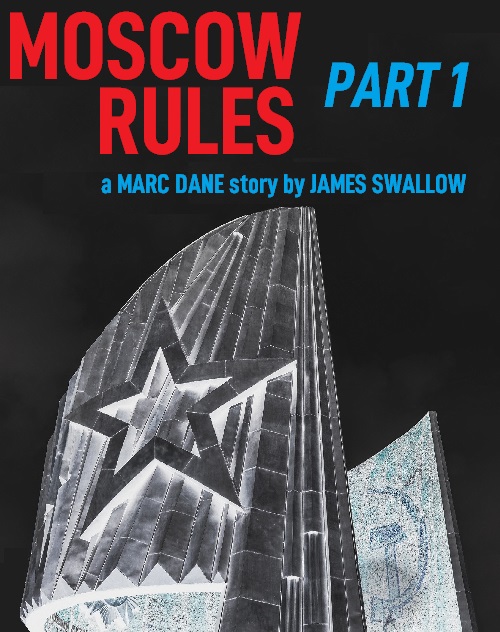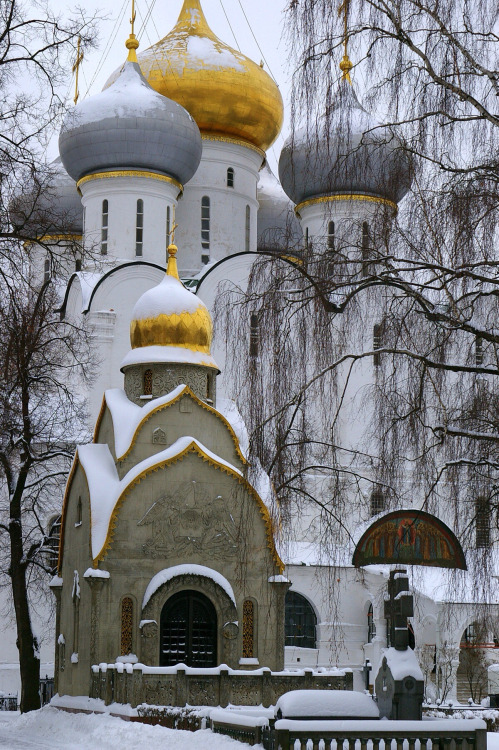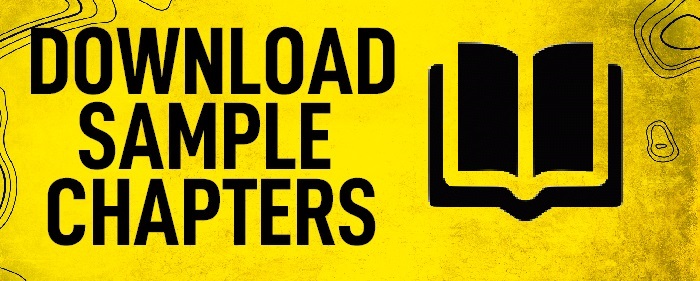When I first launched this website five years ago, I kicked off with the release of a free-to-download digital serial novel called ROUGH AIR (find it here), a story in my action thriller series featuring reluctant hero and ex-MI6 officer Marc Dane – now I’m doing it again with MOSCOW RULES, a ten-part original story that follows on from the events of my novel OUTLAW. To read more about my inspiration for this story, click here.

Marc Dane is on a mission to fulfil a request for his employer Ekko Solomon – the elderly Sergei Morozov, once a notorious KGB spymaster and now a retired Hero of the Soviet Union – has died unexpectedly, and Solomon dispatches Marc to pay his respects to this old adversary. But on the streets of Moscow, nothing is as it seems, and Marc quickly finds himself dragged into a deadly scavenger hunt for a prize that could cause chaos in the wrong hands…
Read on for Part 1 of MOSCOW RULES; future chapters will be released via my blog here, but if you’d like to get early access, sign up at this link or type your email address in the box at the bottom of this page.
MOSCOW RULES part 1 – ASSUME NOTHING

The flakes of sleet falling from the low clouds resembled the petals of some strange pale flower, downy and feather-like, settling around the Englishman as he passed through the great red gateway of Novodevichy Cemetery.
Moscow’s steady snowfall flattened the air as it came down, smothering not just the graves and the headstones, but the sounds from the streets beyond. It threw a dreamy veil over the hard angles of slab-like office blocks, and the gilded domes inside the walls of the necropolis.
It wasn’t quite up to a blizzard yet, but it also wasn’t enough to dull the grim, brutalist reality of the city. No amount of scattershot gentrification could conceal the old Soviet bones; blunt concrete architecture glowered behind radiant advertising panels, gold and glass spread like ivy over retrofitted frontages, but it was all a thin layer atop the grey. A painted smile on a grimacing face.
Marc Dane picked his way through the cemetery’s maze of memorials, making sure to avoid the more famous burial plots where clusters of tourists congregated to take sombre selfies. Novodevichy was the final resting place of many of Moscow’s great and good, among them former leaders like Khrushchev, Gorbachev and Yeltsin, along with dozens of famous Russian philosophers, actors, authors and scientific luminaries. Even beneath the heavy snow, it had the sense of a well-kept park, but that didn’t make Marc feel any more comfortable about being there.
Holding a spray of wrapped flowers in the crook of one arm, he pulled his long, heavy coat closer around his shoulders. His gloved hands pushed deep into its pockets, the thick collar turned up against the cutting, bone-deep chill of the Muscovite winter. Marc was warm and clammy in the coat, a combination of its dark mass and the so-called ‘bulk garment’ he wore under his shirt; the latter was part of a disguise, designed to broaden out his whipcord-thin body silhouette and make him appear heavier. Matched with subtle pads in his cheeks, a black wash over his usually dirty-blond hair and an untrimmed beard, Marc topped off the camouflage with a pair of nondescript eyeglasses. Together, the whole ensemble put ten years on him, aging Marc up into his late forties. So far the cover had worked well enough to get him across the Russian border and into the capital, but with every step closer to his destination, his trepidation increased.
Icy cold crawled along his spine despite the snug layers of his clothing. Coming to Moscow alone, unarmed, and without backup was the height of jeopardy for someone in Marc’s line of work – and yet he had done so without question at the behest of a friend.
I need you to be my proxy. He recalled the seriousness with which Ekko Solomon had made his request. This is a matter of honour for me. It is something that I can only ask of a man whom I trust implicitly.
Of course, Marc had said yes. He owed much to the African, and it never entered his mind to refuse. Once, Marc Dane had been on the run from his own nation, a former MI6 field officer accused of betraying his oath and killing his team-mates. Solomon had helped Marc break apart that lie, helped him find the traitors who framed him and, eventually, bring them a measure of retribution.
Marc gained a renewed purpose during that mission, becoming part of the Rubicon group, a team of second-chancers Solomon assembled to work for a greater good. Outside the structures of conventional covert agencies and state governments, acting in the margins and the shadows, they pushed back wherever they could. We have no nation but justice, as Solomon said.
So on the surface of it, taking the older man’s place at a funeral service in order to pay his respects seemed a small ask in return. But like most things in the clandestine world he moved through, Marc’s task was freighted with levels of unseen complexity.
The last time he’d been in Moscow was three years earlier, at the ragged end of a pursuit that had taken Marc into the corridors of a conspiracy wrapped around the world. That grim night’s work concluded with a trigger he pulled, and the man who ruined his life bleeding out into the rain and the mud. He’d never been a killer, but to some that wouldn’t matter.
Hence, the work with the disguise and his fake Norwegian passport that had cost plenty to source. All just to lay a few flowers on a new grave, in a city run by people who would have happily buried Marc Dane right next to the man being memorialized.
Up ahead, he saw the loose knot of mourners gathered around the plot he was looking for, as a priest concluded the rites. A small group, most of them elderly grey men in equally grey overcoats, each of whom were very deliberately ignoring one another. Each man had a shadow, thickset pit-bulls on two legs sporting black sunglasses and airs of menace. Marc surmised they would be ex-military or secret police, trained to do violence at a single word of command. He gave them a wide berth and circled around, silently approaching as the pallbearers gently lowered the deceased’s coffin into the cold, dark earth.
Sergei Morozov was dead. A few were here to say their farewells to the former KGB spymaster, lamenting the passing of a venerated comrade or shedding a tear for someone they had loved. But most of this small gathering had come to make sure, to be certain this old adversary was truly gone from the world.
Marc had seen a SIS file on Morozov, and even that heavily-redacted document made for compelling reading. A product of the bad old days of the Soviet Union, Morozov had been a consummate Cold Warrior, whose record resembled the byzantine machinations of a character from a le Carré novel. Pretty much every major KGB and FSB operation over the last five decades had the man’s fingerprints on it somewhere. A legendary figure in the ‘Great Game’, rumour had it that even being retired for two decades hadn’t stopped Morozov from keeping his hand in, right up until the very end.
That end being, in a rather prosaic fashion, a fatal meeting with a public tram in full view of a dozen eye-witnesses. Given the identity of the victim, the first assumption was one of foul play, but it gradually became clear that the opposite was more likely. The simple fact was, fate and time had caught up with an old and infirm man, who slipped on wet cobbles and into the path of an oncoming vehicle. Morozov had been a force to be reckoned with in his day, but he had outlived the majority of his enemies and those who still remained left him in the dust of the past. His was a sad, ordinary death for someone who escaped dozens of assassination attempts throughout his younger years.
At least, that was the narrative everyone had agreed upon. In a country where disinformation was as common as the snowfall, it was hard to be certain of any truth.
Marc maintained a respectful distance from the proceedings, allowing the scrutiny of the men in sunglasses to pass over him, keeping his head down. He saw an aged, elegant woman weeping delicately into a silken handkerchief, recognizing the dead man’s wife.
Galina Morozova; photos of her were in the file, among them a shot from when she was competing in the fencing competition at the 1976 Olympics in Montreal, where she and Sergei had first met. Decades later, Galina still possessed the same willowy grace she had in her youth, and her sorrow seemed heartfelt. Marc looked away, feeling like an intruder on someone else’s genuine grief. Morozov had been a ruthless and implacable enemy, with no shortage of blood on his hands, but as Solomon had explained, he had also been a man of honour who never failed to keep his word. Rare qualities in this era, he noted.
As global tides of politics and ideology shifted, there were times when Solomon’s and Morozov’s interests aligned, where adversaries found common ground to oppose greater threats. As Solomon put it, the two aging warriors had come to respect one another – and in the end, after having lost so much to the endless grinding conflict of the ‘dark world’ of espionage, theirs was the closest thing to real friendship Sergei Morozov had.
Marc’s Russian was serviceable enough to know that the priest was winding up the proceedings, and he glanced around, double-checking lines of sight and possible escape routes should the situation become unpleasant. He didn’t expect anything so déclassé as to see guns coming out at a funeral, but at the same time he was well aware of what the local security services were capable of.
And on a second look, he noticed a couple of figures he hadn’t seen before, observing events from a few plots away. Another pair of former military types, but unlike the bodyguards, these two didn’t care to conceal it. They dressed like military contractors, in heavy boots and tactical trousers festooned with pockets, with matching black bomber jackets and watch caps. One of them held something in their hand, a small ruggedized digital camera trained on the funeral, recording every moment of the ceremony. Marc turned away before the lens moved in his direction, keeping the other mourners between him and the watchers. He was also recording the event, but more discreetly, through a micro-camera cell embedded in the bridge of his fake spectacles.
Those two are mercenaries. He had no doubt of it, and their presence raised questions. But paid by whom? And why?
In the past, men like those soldiers of fortune would have been circumspect and unobtrusive, but in today’s Russia, alight with a constant torrent of firebrand rhetoric and mired in conflict with the Ukraine, had a markedly different tone.
It’s the wild west over there now. Marc recalled the comment his partner Lucy Keyes made, before he set off. Watch your ass, Dane. Moscow has its own set of rules, and if you break ‘em, you’re gone.
The priest gave his final blessing, and one by one the assembled mourners filed past the grave to put down wreaths or peer in to check the coffin was still lying there. Marc picked his moment, and laid his flowers – a simple spray of white roses and calla lilies – before giving Morozov’s shiny black headstone a curt nod.
“It is a fine memorial.” It took him a second to realize the comment was in English, not Russian, and he turned to find Galina standing behind him. She smiled at Marc as if she were pleased to see him, even though they were strangers.
He resisted the urge to scratch nervously at his beard, in case he dislodged the pads that fattened out his cheeks. “Yes,” he agreed, at length. “Quite lovely.”
Galina came closer. “It is very rare for anyone less than a national hero to be buried in Novodevichy these days.” She looked down into the open grave at the oaken coffin. “It speaks to Sergei’s reputation that they found a place for him. I imagine he would be amused by that.”
Marc was stuck for the right thing to say, so he went for the clearest, simplest statement. “I’m sorry for your loss, ma’am. Ekko Solomon sends his respects.”
“Oh.” Galina moved suddenly, and Marc found himself enveloped in her embrace. “Thank you.” Gingerly, he reciprocated, and the old woman’s voice dropped to a breathy whisper. “Sergei said he is the only one who should have it.”
“Pardon me?”
“Byt’ ostorozhnym.” Galina was already disengaging, and as she stepped back Marc felt a slight weight in his pocket. The woman had slipped something into his coat. Dabbing at her eyes, she took the hand of a female friend and walked away, off along the path.
Making the action as casual as he could, Marc put his hands back in his coat and departed, deliberately taking the route that led him in the opposite direction to the men with the camera. He felt for the object Galina had deposited; a metal ring with a plastic fob and two keys attached.
Making sure he wasn’t being observed, Marc stepped into the lee of a tall obelisk and pulled out the keys to study them. One was tiny, like the kind you’d use to open a pair of handcuffs or a jewellery box, but the other was for a commonplace mortice lock. The fob had a folded card insert, and he opened it, finding an address written in a careful, precise hand.
Had Solomon known Morozov’s wife would give this to him? Was it part of the mission, or something else? He put the keys in an inner pocket and considered his options.
He was thinking about what it could mean when he heard the soft crunch of snow under heavy boots. Marc chanced a look around the obelisk, and there were the two mercs approaching, looking this way and that, like they were searching for someone. Each had one hand inside their jacket, reaching for the blocky lump of a pistol concealed beneath.
He knew enough Russian to be able to translate Galina’s last words to him: be careful.
Without looking back, Marc pulled up the collar of his coat and made for the cemetery’s exit as the snowfall thickened.


